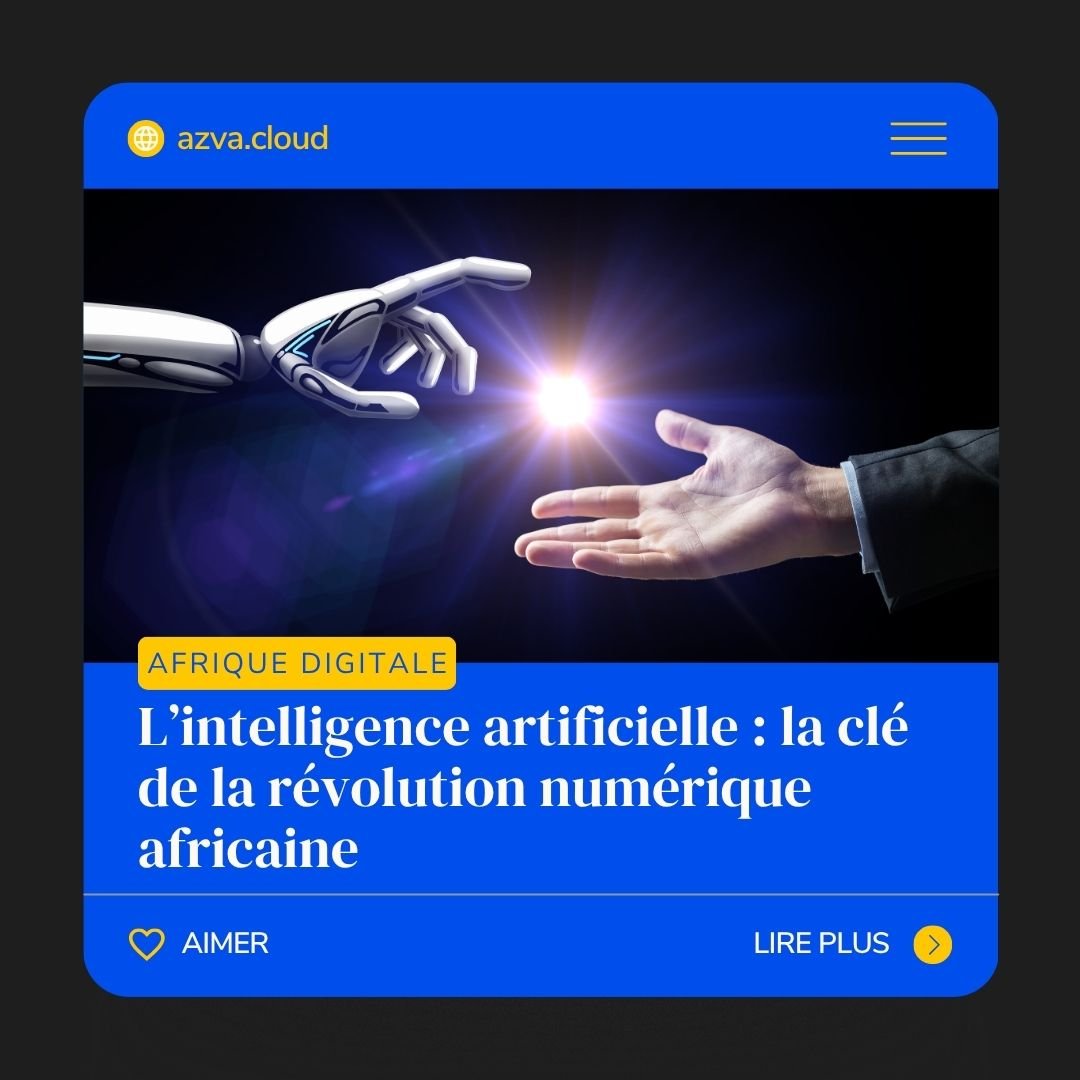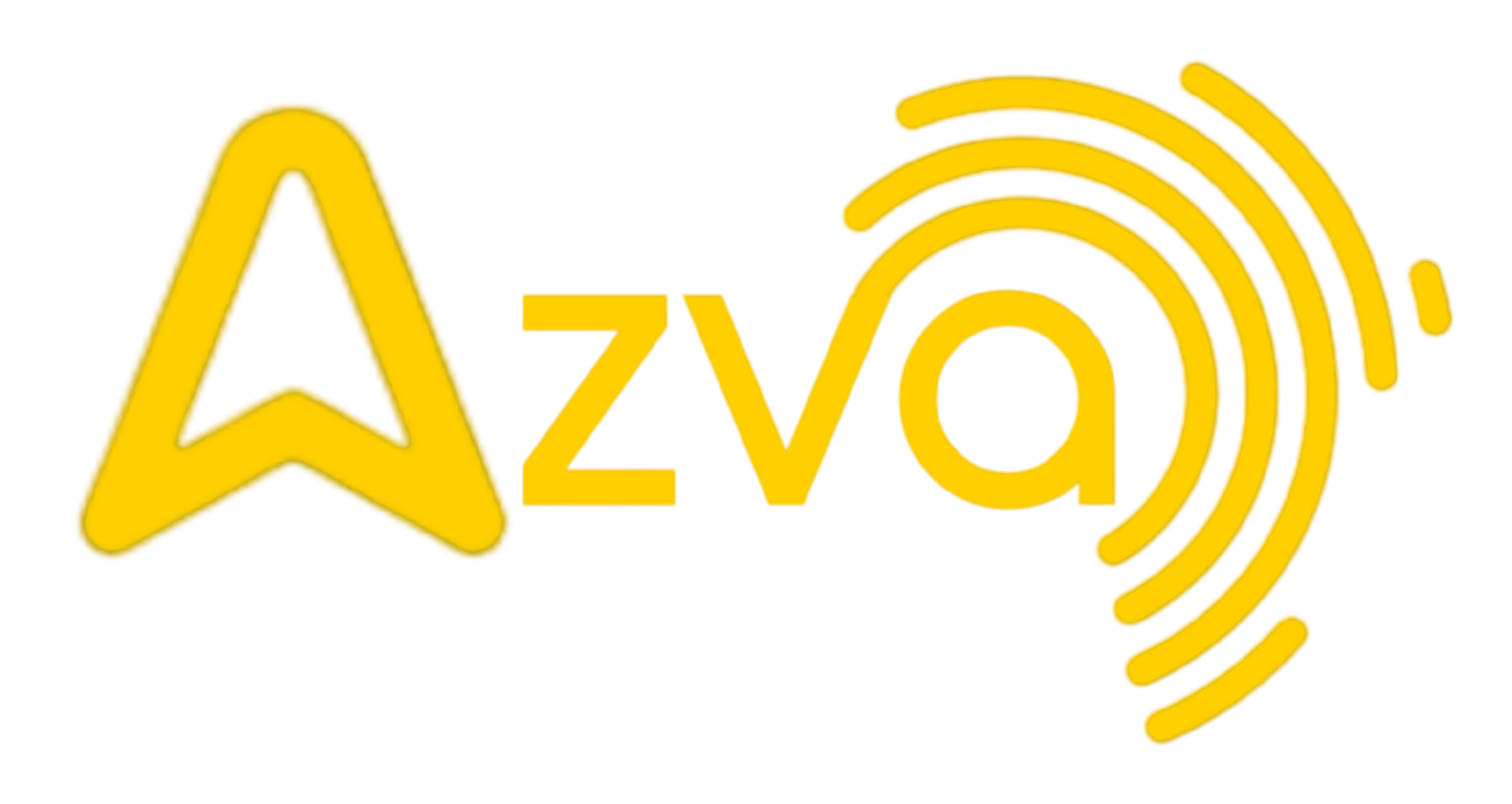Artificial Intelligence: The Key to Africa’s Digital Revolution

Introduction
Artificial Intelligence (AI) is no longer just a futuristic concept—it’s already transforming how we work, communicate, and innovate. In Africa, AI represents more than just technological progress—it’s a strategic opportunity to tackle deep-rooted challenges and accelerate sustainable growth.
A Fast-Growing Technology
By 2030, AI could generate billions in added economic value, especially across agriculture, healthcare, finance, education, and governance. The main trends in 2025 include:
Generative AI (like ChatGPT), creating content, code, or insights from simple prompts;
Collaborative AI, where intelligent agents support, not replace, human workers;
Localized micro-models, better adapted to African languages and cultures.
Africa’s Opportunities
AI can provide concrete solutions to African realities:
Agriculture: Predicting yields, detecting crop diseases, optimizing irrigation.
Healthcare: Supporting diagnostics, guiding patients through smart medical bots.
Finance: Analyzing behavior for credit scoring and micro-loans.
Education: Personalized learning paths and interactive digital tutors.
At AZVA, we believe in building ethical, inclusive, and Africa-centered AI. That’s why we’re creating AGBE AI, a smart assistant to empower entrepreneurs, students, creators, and developers across the continent.
Challenges to Overcome
AI adoption in Africa is still limited due to:
Lack of accessible, localized datasets;
Limited cloud infrastructure in rural areas;
Urgent need for AI and ML training programs.
But these are solvable challenges. With proactive policies, regional partnerships, and strong community engagement, Africa can lead the next wave of AI innovation.
Conclusion
AI is a key to unlocking Africa’s next digital era. By acting today—experimenting, learning, and collaborating—we can build a sovereign, sustainable, and human-first tech future.
Follow the AZVA blog for upcoming AI articles, tutorials, African success stories, and insights from our internal R&D labs.
Artificial Intelligence (AI) is no longer just a futuristic concept—it’s already transforming how we work, communicate, and innovate. In Africa, AI represents more than just technological progress—it’s a strategic opportunity to tackle deep-rooted challenges and accelerate sustainable growth.
A Fast-Growing Technology
By 2030, AI could generate billions in added economic value, especially across agriculture, healthcare, finance, education, and governance. The main trends in 2025 include:
Generative AI (like ChatGPT), creating content, code, or insights from simple prompts;
Collaborative AI, where intelligent agents support, not replace, human workers;
Localized micro-models, better adapted to African languages and cultures.
Africa’s Opportunities
AI can provide concrete solutions to African realities:
Agriculture: Predicting yields, detecting crop diseases, optimizing irrigation.
Healthcare: Supporting diagnostics, guiding patients through smart medical bots.
Finance: Analyzing behavior for credit scoring and micro-loans.
Education: Personalized learning paths and interactive digital tutors.
At AZVA, we believe in building ethical, inclusive, and Africa-centered AI. That’s why we’re creating AGBE AI, a smart assistant to empower entrepreneurs, students, creators, and developers across the continent.
Challenges to Overcome
AI adoption in Africa is still limited due to:
Lack of accessible, localized datasets;
Limited cloud infrastructure in rural areas;
Urgent need for AI and ML training programs.
But these are solvable challenges. With proactive policies, regional partnerships, and strong community engagement, Africa can lead the next wave of AI innovation.
Conclusion
AI is a key to unlocking Africa’s next digital era. By acting today—experimenting, learning, and collaborating—we can build a sovereign, sustainable, and human-first tech future.
Follow the AZVA blog for upcoming AI articles, tutorials, African success stories, and insights from our internal R&D labs.
Did you like this article?
Click the button to show your appreciation
